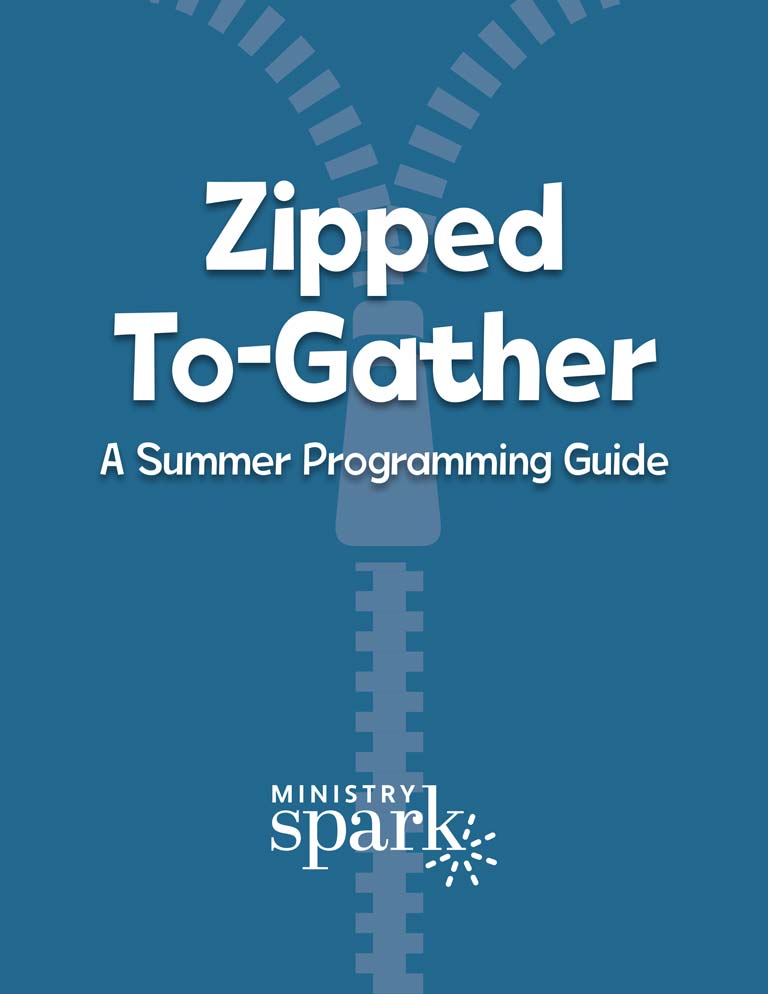One year at VBS, a mom shared how she had never understood why her elementary son wanted to wear his VBS T-shirt all the time. She asked, “Is it weird that he wants to wear it every single day?”
Then she volunteered for VBS the next year and said, “I get it now. It’s not about the T-shirt. It’s about how he feels in the shirt because it reminds him of this amazing week—the fun, the community he built, and God.”
That one conversation solidified the importance of special events in children’s ministry as part of my ministry philosophy. Her feedback reminded me of the importance of creating shared memories for kids and families and how those experiences create an inviting environment where discipleship can flourish.

Special Events Are Important
Whether it’s a traditional VBS, a sports camp, a family night, a preteen game night, or some crazy mixture of all of the above, special events are vital to the heartbeat of a thriving children’s ministry.
Research has shown that church attendance is declining, with fewer and fewer families attending weekly. Lower attendance means ministry leaders have to be creative and think outside the box (and outside of Sunday mornings) to connect with families.
That’s where special events come in.
These gatherings go beyond regular programming, creating memorable experiences that strengthen relationships and build a sense of belonging.
How Can Special Events Serve My Ministry?
Special events come in all shapes and sizes: VBS, egg hunts, holiday events, family events, age-specific events, overnight camps, sports camps, day camps, etc. Basically, anything that happens outside of regular Sunday morning or mid-week programming is a special event.
These gatherings go beyond regular programming, creating memorable experiences that strengthen relationships and build a sense of belonging.
Special events make space for kids and families inside your church and your community to connect with one another. They reach kids, families, and your local community through fun, engaging opportunities that create relationships and connection points. They foster community, provide outreach opportunities, and create shared memories.
This might step on some toes, but real relationships aren’t typically formed on Sunday mornings. They form on the playground, at the ball field, during a movie night, and over a consistent period of time that allows lives to intersect.
Special events provide those opportunities for kids and families to get to know each other on a deeper level and in a fun way.

Zipped To-Gather: A Summer Programming Guide

Zipped To-Gather: A Summer Programming Guide

Zipped To-Gather: A Summer Programming Guide
Practical Tips for Hosting Special Events
I will always go to bat for the importance of special events in children’s ministry, but I also advocate for intentional events that are wise with the limited time, resources, and people available to ministry leaders.
So, while you’re considering your next special event, keep these tips in mind to ensure they’re worth your energy.
Remember your why.
Always keep the main goal(s) of your event front and center when planning, so you can ensure that every decision going into the event will help you accomplish that goal.
Is the goal to develop biblical literacy in kids? To help kids form friendships? To model family discipleship?
While special events may encompass a combination of these, the main priority will always drive the schedule created, the budget set, and the decisions made for a particular event.
Before families leave your special event, make them aware of a next opportunity to connect with your church or ministry.
Keep it simple—with the overall calendar and the event itself.
Be mindful of the ministry calendar you offer to families, being careful not to put too many events on the schedule, which can lead to burnout for you and the families you serve. One large special event per quarter or semester is a good pace, and you might also consider creating smaller special events for niches within your ministry.
The parents in my ministry love Preschool Playdates and special events designed just for the littles, while our preteens enjoy a special preteen-only Game Night each semester.
These don’t have to be big and extravagant or include the entire ministry to be effective. I’ve served at churches where VBS is a Disney-level immersive experience for kids, and I’ve served at churches where the only decorations we had were some extra posters on the walls.
Both met the goals of the church in reaching the community and helping kids grow deeper in their faith.
Build a team.
You can’t (and shouldn’t) host a special event on your own.
Think about the people you can invite into the planning and hosting process and give them room to use their God-given talents and gifts. Consider who may enjoy prepping supplies, planning certain aspects, or greeting during the event.
Curate a team of people to serve with you at each special event, from preparation to clean up.

Plan ahead and promote.
Start planning well in advance to ensure everything runs smoothly. Make a checklist of tasks, set deadlines, and delegate responsibilities to team members. Then use various modes of communication to promote the event to potential attendees.
Announce it in service (both kids’ and the main service, if applicable), share about it on social media, send out emails, hand out flyers, and put up posters to ensure everyone knows when and where it’s happening. Families can’t attend if they don’t know about the event well enough in advance.
Give attendees a next step.
Before families leave your special event, make them aware of a next opportunity to connect with your church or ministry. Invite them to a Sunday morning service, provide details about the next special event, or help them connect with another church member.
Providing another touch point after a special event is a great way to create consistency in interactions that allows relationships to form.
Evaluate.
After each event, always take time to evaluate and gather feedback from your team and the attendees. Ask questions, consider what might need to change, and celebrate the wins from the event.
Conclusion
At the end of the day, we want to point kids toward Jesus. But we can’t do that unless they know that they are loved and valued and worth investing in.
So, host the special event. Create the shared memories. Do the messy, fun thing that sparks interest and engagement.
Whether it’s a festive holiday celebration, a fun-filled family game night, or an outreach initiative, special events are vital for nurturing connections and fostering a vibrant, supportive environment that allows true discipleship to take root and thrive.
More Articles Like This
- Summer of Change: How to Change Up Summer Programming in Your Ministry
- 6 Fun Ideas for Engaging Kids in Summer
- How to Bring a Mission Mindset to the Kidmin Classroom
- VBS Alternatives: Take Back Summer for Kids’ Ministry!
- VBS Planning That Doesn’t Make You Want to Scream
- Why You Need to Include Kids with Disabilities in VBS and How to Do It
- Creative Summer Programming in Children’s Ministry










